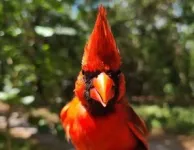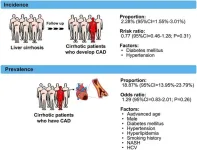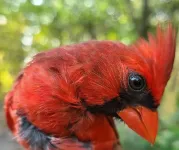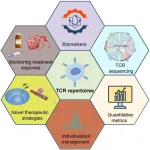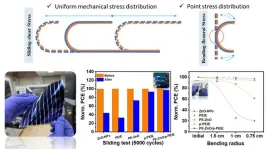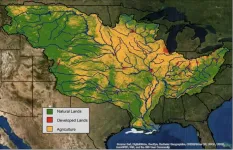(Press-News.org) During economic, political, or other crises, non-governmental organisations (NGOs) often experience a heightened need for their support and assistance. Yet, the recent global crisis of the COVID-19 pandemic presented unexpected challenges to the NGOs: restrictions on movement imposed by governments prevented them from carrying out their activities and providing certain services. Moreover, despite the increase in demand for NGO services, organisations have faced the problem of raising funding, as some of the usual methods of fundraising have become impossible.
“For these reasons, some organisations decided to “wait out” the difficult period, thinking that things will soon return to “normal”. While others have managed to continue their activities and even to improve their financial results,” says Dr Šviesa Leitonienė, a researcher at the KTU School of Economics and Business.
She explains that examining such success stories was the main purpose of the study conducted by an international team of researchers from Lithuania, Poland and Croatia universities. The scientists believe that finding out what solutions helped NGOs raise funds and successfully carry out their activities during the COVID-19 pandemic would be very useful while preparing for future crises.
Lessons learned during COVID-19 are used by NGOs to fundraise for Ukraine
She notes that NGOs work to promote the interests of society, focusing on issues and needs that the government and business sectors cannot address. For this reason, the importance of NGOs’ activities increases in difficult times. However, Dr Leitonienė adds, that in times of crisis, NGOs also face certain challenges, such as attracting additional funding.
“It is important to explore how NGOs adjust their activities and overcome the difficulties they face. Differently from most of the research in this field, we focus on examining the success stories – that is, finding out how and with what solutions NGOs were able to raise funds and successfully carry out their activities during the COVID-19 pandemic,” explains Dr Leitonienė.
She believes that the findings might be useful for NGOs to prepare for future crises. According to the KTU researcher, NGOs’ flexibility such as their ability to attract additional funding by working closely with the government, founding companies, and donors and by carrying out joint projects with other NGOs is an important indicator of their resilience.
“For example, virtual fundraising, which was introduced during the COVID-19 pandemic, has been successfully used to raise funds to address the problems related to the war in Ukraine today,” says Dr Leitoniene.
Among success factors – collaboration, virtual fundraising and publicity
The study analysed 240 NGOs from four countries: Poland, Lithuania, Croatia, and the United Kingdom. Each country contributed 60 organisations to the research sample. The study focused on comparing revenues from two periods (2019 and 2020) to determine the financial impact of the COVID-19 pandemic on the organisations.
Using a mixed-method approach – content analysis of NGO financial reports and statistical methods, including logit regression – changes in financing models and critical success factors, and their interrelationships were established.
The study revealed that although some NGOs managed to achieve better financial results, i.e. to maintain the same level of funding or even to increase it, they didn’t achieve their objectives.
“This does not mean, that NGOs received more money while carrying out fewer activities. It simply means that the NGO carried out other activities or in a different way than planned,” explains the KTU’s School of Economics and Business researcher.
She says that many of the financially successful NGOs linked their activities to the societal problems caused by the COVID-19 pandemic instead of focusing on their previous objectives. Moreover, the transfer of activities online was not always possible or did not ensure the previous quality of services or advice.
The study revealed that the main factors contributing to the NGOs’ financial success during the COVID-19 pandemic were working with governments and taking on additional projects, working closer with the founders of the organisations, virtual fundraising and publicity, and working with other NGOs to combine resources to implement joint projects.
Being transparent helps build public trust
The KTU researcher notices that the NGO sector’s development and the availability of their data in the countries chosen for the study are very different.
“Strong and competitive NGOs are a sign of a vibrant civil society. Public trust and involvement in NGOs’ activities are crucial for the success of these organisations,” says Dr Leitonienė.
In Lithuania, citizenship and activism are only slowly gaining ground, as are NGOs. In the World Giving Index Rankings 2024 report, Lithuania is ranked 139th, Poland 142nd, Croatia 137th and the United Kingdom – 22nd. Dr Leitonienė believes that this might be due to the different historical circumstances, funding opportunities and cooperation between the NGOs and the governments in the selected countries.
“One thing that could be learnt from the UK organisations, is increasing the transparency of NGOs by encouraging them to disclose financial and non-financial information to the public,” says the KTU researcher, adding that in Lithuania, it is not easy to find information even on the number of NGO’s operating in the country, and the large number of NGOs do not provide sufficient information on their activities.
“By being more transparent, the NGOs would contribute to increasing public trust and engagement in their activities,” says Dr Leitonienė.
END
Navigating crises: The financial adaptations of NGOs during the COVID-19 pandemic
A new study led by Kaunas University of Technology (KTU) in Lithuania has found that the COVID-19 pandemic had a mixed impact on NGOs.
2024-12-10
ELSE PRESS RELEASES FROM THIS DATE:
Early life exposure to toxic chemicals may cause behavioral, psychological problems
2024-12-10
WASHINGTON—Early life exposure to a class of endocrine-disrupting chemicals (EDCs) called polychlorinated biphenyls (PCBs) may lead to behavioral problems in rats, according to a new animal study published in the Journal of the Endocrine Society.
Endocrine-disrupting chemicals (EDCs) are chemicals that mimic, block or interfere with hormones in the body's endocrine system and contribute to endocrine diseases such as cancer, reproductive disorders, obesity and neuroendocrine disorders.
PCBs have been banned for decades but are still persistent in ...
AI predicts Earth’s peak warming
2024-12-10
Researchers have found that the global goal of limiting warming to 1.5 degrees Celsius above pre-industrial levels is now almost certainly out of reach.
The results, published Dec. 10 in Geophysical Research Letters, suggest the hottest years ahead will very likely shatter existing heat records. There is a 50% chance, the authors reported, that global warming will breach 2 degrees Celsius even if humanity meets current goals of rapidly reducing greenhouse gas emissions to net-zero by the 2050s.
A number of previous studies, including the authoritative ...
Risk of coronary artery disease in patients with liver cirrhosis: A systematic review and meta-analysis
2024-12-10
Background and Aims
Coronary artery disease (CAD) is increasingly observed in patients with liver cirrhosis. However, data on the incidence and prevalence of CAD in cirrhotic patients are heterogeneous, and the association remains uncertain. In this study, we aimed to conduct a systematic review and meta-analysis to address these issues.
Methods
PubMed, EMBASE, and Cochrane Library databases were searched. Incidence, prevalence, and factors associated with CAD were pooled using a random-effects model. Risk ratio (RR) and odds ratio (OR), with their ...
Wild birds’ gut microbiome linked with its ornamentation and body condition
2024-12-10
All living organisms host microbiomes composed of both beneficial and harmful microbes that influence health. Microbiome diversity affects host fitness: low diversity can lead to immune issues and poor nutrient absorption, while high diversity can boost resilience to stress and pathogens.
To illuminate this issue, researchers from Florida Atlantic University’s Charles E. Schmidt College of Science, have spent the last five years studying the relationships between songbird gut microbiomes and traits that relate to a bird’s health and breeding success. While links between the gut microbiome and other traits have been described in laboratory experiments with captive animals, ...
T-cell receptor repertoire analysis in the context of transarterial chemoembolization synergy with systemic therapy for hepatocellular carcinoma
2024-12-10
Hepatocellular carcinoma (HCC) stands as the dominant form of liver cancer, ranking as the fourth leading cause of cancer-related deaths globally. Often diagnosed at advanced stages, the therapeutic landscape is limited, with transarterial chemoembolization (TACE) serving as a key locoregional treatment. TACE, while effective in inducing tumor necrosis, exerts dual effects on the tumor microenvironment (TME), necessitating integration with systemic therapies like immune checkpoint inhibitors (ICIs). Yet, therapeutic resistance, hypoxia-induced angiogenesis, and immune evasion remain significant barriers. The advent of T-cell receptor (TCR) sequencing offers a transformative lens to ...
Flexible and rollable? No problem!
2024-12-10
The Korea Institute of Materials Science (KIMS) announced that a research team led by Dr. Dong-Chan Lim and Dr. So-Yeon Kim from the Energy & Environment Materials Research Division has developed a next-generation thin-film material technology that significantly improves the durability of energy and electronic devices. This technology, which combines organic and inorganic materials in a dual-layer structure, can be applied to film-based solar cells and sensors. It is particularly notable for its ability to minimize the physical stress caused by rolling or unrolling, thereby greatly enhancing mechanical ...
Bighorn sheep face death by avalanche in Sierra Nevada range
2024-12-10
AGU Annual Meeting
9 – 13 December 2024
Walter E. Washington Convention Center
801 Allen Y. Lew Place NW
Washington, D.C. 20001
5 December 2024
Press Release 24-37
EMBARGOED until Tuesday, 10 December at 8:00 a.m. EST
Bighorn sheep face death by avalanche in Sierra Nevada range
Even as snow cover becomes less reliable, climate change may make deadly avalanches in the California range more frequent
Researcher contact:
Ned Bair, University of California, Santa Barbara, edwardbair@ucsb.edu (UTC-8 hours)
AGU press contact:
Liza Lester, +1 (202) 777-7494, news@agu.org ...
These are now the smokiest cities in America, new science says
2024-12-10
AGU Annual Meeting
9 – 13 December 2024
Walter E. Washington Convention Center
801 Allen Y. Lew Place NW
Washington, D.C. 20001
6 December 2024
Press Release 24-39
EMBARGOED until Tuesday, 10 December at 8:00 am EST
AGU press contact:
Liza Lester, +1 (202) 777-7494, news@agu.org (UTC-5 hours)
Contact information for the researchers:
Dan Jaffe, University of Washington, djaffe@uw.edu (UTC-8 hours)
WASHINGTON — Normally, America’s smokiest cities lie out west. But Canada’s unusually intense 2023 wildfire ...
Flood disasters associated with preterm births and low birth weights
2024-12-10
AGU Annual Meeting
9 – 13 December 2024
Walter E. Washington Convention Center
801 Allen Y. Lew Place NW
Washington, D.C. 20001
8 December 2024
Press Release 24-40
EMBARGOED until Tuesday, 10 December at 8:00 am EST
Researcher contact:
Julia Gohlke, Virginia Polytechnic Institute and State University, jgohlke@vt.edu (UTC-5 hours)
AGU press contact:
Rebecca Dzombak, news@agu.org (UTC-5 hours)
WASHINGTON — Floods can shape someone’s health before they’re even born, according to new research. The findings will be presented ...
Heavy rains deliver largest amounts of fertilizer-derived nitrogen pollution to the Gulf of Mexico, new study finds
2024-12-10
Chestnut Hill, Mass (12/10/2024) – As opposed to a constant flow from sources above and below ground, periods of heavy rain and runoff deliver the greatest amounts of fertilizer-derived nitrogen through creeks, rivers, and storm drains into the northern Gulf of Mexico, a team of scientists led by Boston College researchers reports today in the journal Communications Earth and Environment.
The findings clarify how nitrogen is delivered to the gulf and can be used to develop policies to protect the northern Gulf of Mexico, according to Boston College Assistant Professor of Earth and ...
LAST 30 PRESS RELEASES:
Roadmap for Europe’s biodiversity monitoring system
Novel camel antimicrobial peptides show promise against drug-resistant bacteria
Scientists discover why we know when to stop scratching an itch
A hidden reason inner ear cells die – and what it means for preventing hearing loss
Researchers discover how tuberculosis bacteria use a “stealth” mechanism to evade the immune system
New microscopy technique lets scientists see cells in unprecedented detail and color
Sometimes less is more: Scientists rethink how to pack medicine into tiny delivery capsules
Scientists build low-cost microscope to study living cells in zero gravity
The Biophysical Journal names Denis V. Titov the 2025 Paper of the Year-Early Career Investigator awardee
Scientists show how your body senses cold—and why menthol feels cool
Scientists deliver new molecule for getting DNA into cells
Study reveals insights about brain regions linked to OCD, informing potential treatments
Does ocean saltiness influence El Niño?
2026 Young Investigators: ONR celebrates new talent tackling warfighter challenges
Genetics help explain who gets the ‘telltale tingle’ from music, art and literature
Many Americans misunderstand medical aid in dying laws
Researchers publish landmark infectious disease study in ‘Science’
New NSF award supports innovative role-playing game approach to strengthening research security in academia
Kumar named to ACMA Emerging Leaders Program for 2026
AI language models could transform aquatic environmental risk assessment
New isotope tools reveal hidden pathways reshaping the global nitrogen cycle
Study reveals how antibiotic structure controls removal from water using biochar
Why chronic pain lasts longer in women: Immune cells offer clues
Toxic exposure creates epigenetic disease risk over 20 generations
More time spent on social media linked to steroid use intentions among boys and men
New study suggests a “kick it while it’s down” approach to cancer treatment could improve cure rates
Milken Institute, Ann Theodore Foundation launch new grant to support clinical trial for potential sarcoidosis treatment
New strategies boost effectiveness of CAR-NK therapy against cancer
Study: Adolescent cannabis use linked to doubling risk of psychotic and bipolar disorders
Invisible harms: drug-related deaths spike after hurricanes and tropical storms
[Press-News.org] Navigating crises: The financial adaptations of NGOs during the COVID-19 pandemicA new study led by Kaunas University of Technology (KTU) in Lithuania has found that the COVID-19 pandemic had a mixed impact on NGOs.

